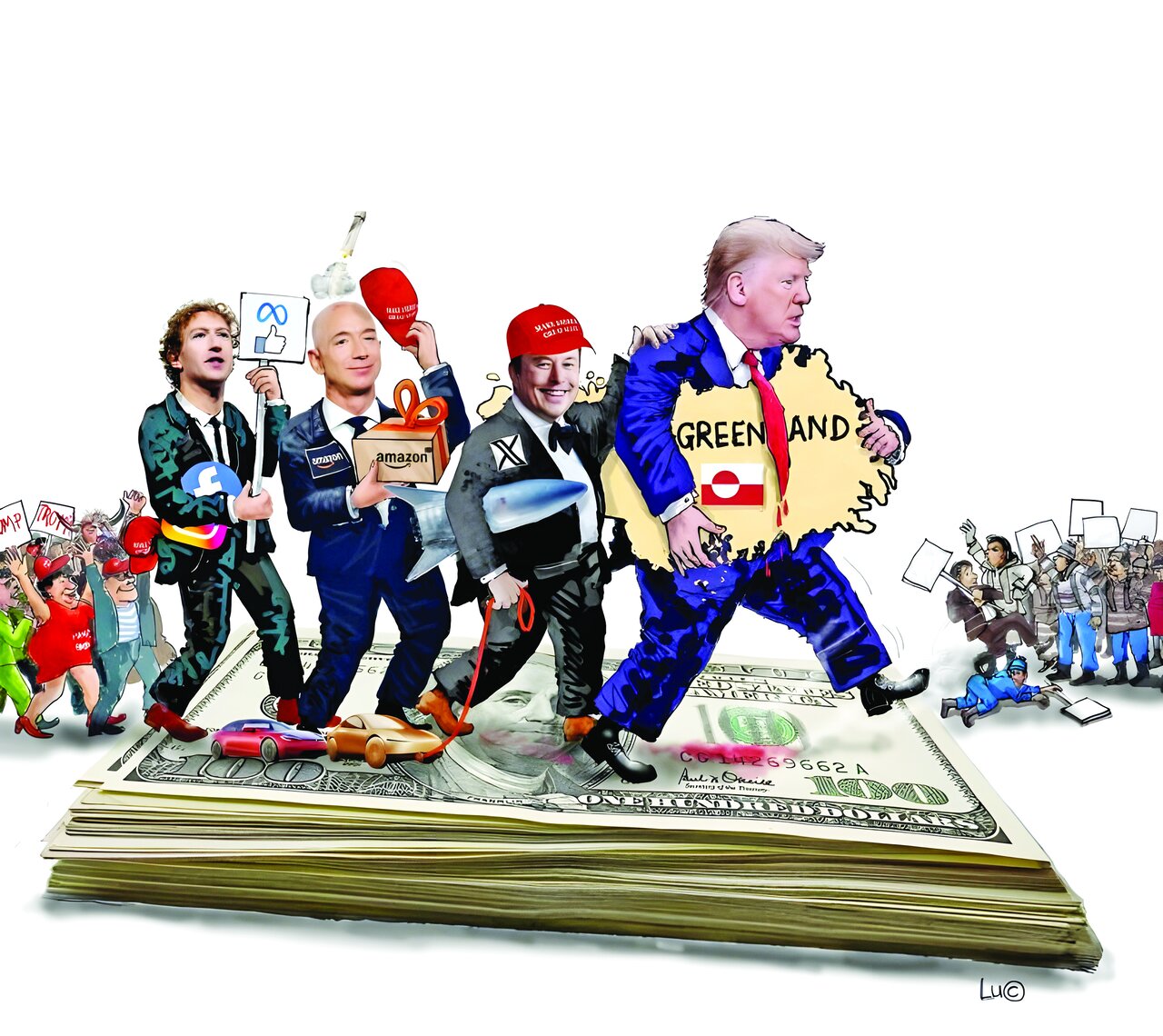Greenland, Panama, Canada... the insatiable America
Iran is often blamed for US pressure, but what about other countries that are being blackmailed?

TEHRAN – An economic war – this is how media and observers are describing U.S. President Donald Trump’s latest set of actions against Canada, one of Washington’s biggest allies, which has become the target of new tariffs next to China and Mexico.
Tariffs are essentially taxes levied on imported goods and services. When a country imports goods, its government may impose a tariff, which is a fee paid by the importer to bring those goods into the country.
Last week, U.S. President Donald Trump announced tariffs of 25% on goods from Mexico, 25% on goods from Canada, and 10% on goods from China. While the tariffs on Mexican goods were later rescinded, those on Canadian and Chinese goods remain in effect.
Canada is particularly concerned about these tariffs, as they are expected to further harm its already struggling economy. Canada exports approximately $470 billion in goods to the U.S. annually. These new tariffs are anticipated to reduce demand for Canadian goods due to higher prices, leading to decreased export volumes to the U.S. and, subsequently, broader economic consequences such as lower GDP growth, job losses, and a weaker currency.
"Tariffs function similarly to sanctions," stated Amir Ali Abolfath, an expert on North American Affairs, highlighting that "both help the U.S. make money". Abolfath explained that by implementing sanctions, the U.S. can benefit by supplanting a sanctioned country, like Iran, in certain markets. He contends that tariffs also enable the U.S. to generate revenue by applying pressure on other nations. "Sanctions are more harmful and aim to reach broader, often political, goals," Abolfath added. "Washington uses sanctions for adversaries, and tariffs for countries it deems more friendly, or in the case of Canada, an ally."
Trump's recently announced tariffs have been accompanied by a string of controversial and unprecedentedly provocative remarks, which have been alarming for the U.S. allies, and thought-provoking for its adversaries.
In the past few weeks, the president has routinely bullied outgoing Canadian Prime Minister Justin Trudeau on social media. One of his closest associates, Elon Musk, tried to mock Trudeau by calling him a “girl”, and both have suggested that Canada should become the “51st state of America”.
Other territories Trump has claimed or threatened to capture belong to Mexico, Panama, and Denmark. He recently announced he has “changed” the name of the Gulf of Mexico to the Gulf of America, rolled out plans to take over the Panama Canal, and expressed his desire to “get Greenland”.
“These remarks and actions," said Abolfath, "remind observers of the time White people arrived in America and began to take over other people's lands.” He added that Trump's comments concerning U.S. allies have, in some instances, been harsher and more provocative than those aimed at adversaries. "How can an ally threaten to take over your territory?" Abolfath questioned, stating, "This only shows that, in the view of Washington, all must prioritize U.S. interests or face severe consequences.”
Was Iran ever at fault?
While fear may be the prevailing emotion for U.S. allies, for many Iranians, the recent developments elicit amusement and absurdity. Trump's policies and rhetoric have ignited heated discussions on social media, with many now revisiting the long-promoted argument that Tehran is responsible when Washington sanctions, destabilizes, or pressures Iran.
On X, an Iranian user inquired, "Am I missing something? Is Canada also being accused of pursuing nuclear weapons?" Another responded with, "Maybe Canada is assisting Resistance movements in Texas.”
Leave a Comment